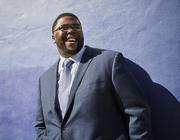Citation:

Abstract:
How do undergraduates engage authority figures in college? Existing explanations predict class-based engagement strategies. Employing in-depth interviews with 89 undergraduates at an elite university, I show how undergraduates with disparate precollege experiences differ in their orientations toward and strategies for engaging authority figures in college. Middle-class undergraduates report being at ease in interacting with authority figures and are proactive in doing so. Undergraduates from lower-income backgrounds, however, are split. The Privileged Poor—lower-income undergraduates who attend boarding, day, and preparatory high schools—enter college with dominant forms of cultural capital akin to those of their middle-class peers, are primed to engage professors, and are proactive in doing so. By contrast, the Doubly Disadvantaged—lower-income undergraduates who remain tied to their home communities and typically distressed schools before college—enter college with less cultural capital, are more defensive when engaging authority figures in college, and tend to withdraw from them. Through documenting the heterogeneity between lower-income undergraduates, I show how static understandings of individuals’ cultural endowments derived singularly from family background homogenize the experiences of lower-income undergraduates. In so doing, I shed new light on the cultural underpinnings of education processes in higher education.
Notes:
This paper won the 2015 Graduate Student Paper Award from Educational Problems Division of the Society for the Study of Social Problems and was featured in the Sunday Review of The New York Times in a piece I penned entitled, “What the Privileged Poor Can Teach Us"


